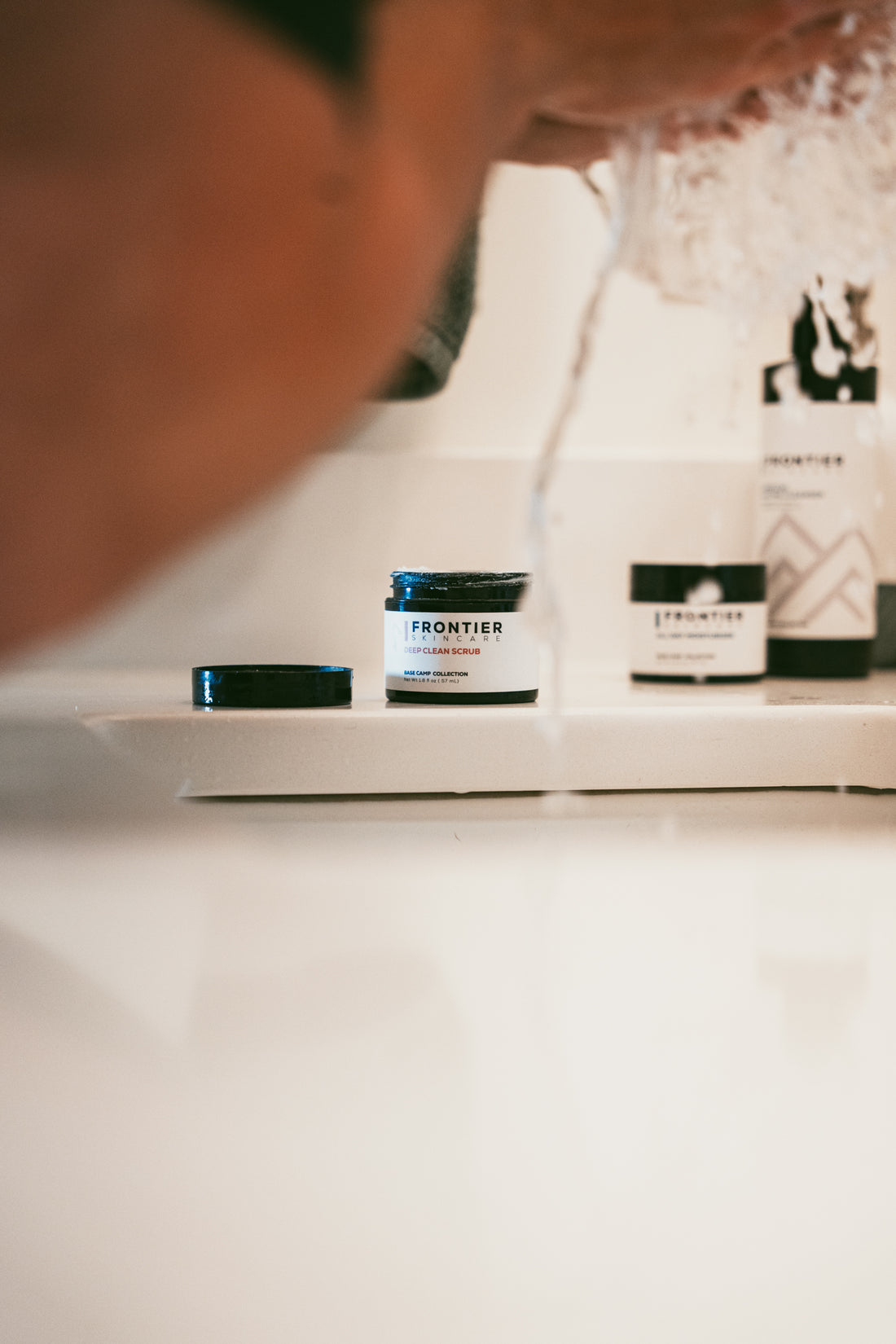
Exfoliation: How to Do It Right
Share
This blog is dedicated to the art of exfoliation. It's the process of sloughing off dead skin cells to reveal the fresher, smoother skin beneath. When done correctly, exfoliation can enhance your skin's absorption of moisturizers and serums, making your entire skincare regimen more effective.
Understanding Exfoliation
There are two primary methods of exfoliation:
- Physical Exfoliation: This involves using a scrub with granules or a brush to manually remove dead skin cells.
- Chemical Exfoliation: These products contain acids or enzymes that dissolve dead skin cells without scrubbing.
The Benefits of Regular Exfoliation
- Smoother Skin: Exfoliation can reduce the appearance of rough patches.
- Improved Texture and Tone: It can help even out skin tone and diminish the look of dark spots.
- Clearer Pores: It helps unclog pores, reducing the likelihood of acne.
- Better Product Absorption: With dead skin cells out of the way, your skin can absorb other products more effectively.
How Often Should You Exfoliate?
This depends on your skin type and the method of exfoliation:
- Normal to Oily Skin: Can often handle exfoliation 2-3 times a week.
- Dry to Sensitive Skin: May only require exfoliation once a week or even less frequently.
- Combination Skin: You may need to exfoliate more often in oily areas than in dry ones.
Always listen to your skin—if it feels irritated or sensitive after exfoliating, cut back on the frequency.
Choosing Your Exfoliant
At Frontier Skincare, we believe in the power of natural ingredients. Here's how to choose:
- Physical Exfoliants: Look for gentle, eco-friendly scrubs that don’t contain plastic microbeads. Options with jojoba beads or oatmeal are gentler on the skin.
- Chemical Exfoliants: Products with AHAs (like glycolic acid) work well for dry skin, while BHAs (like salicylic acid) are better for oily or acne-prone skin.
Exfoliation Best Practices
- Be Gentle: Don't scrub your skin raw. Gentle, circular motions are enough.
- Patch Test: Especially with chemical exfoliants, to ensure you don’t have a reaction.
- Sun Sensitivity: Exfoliation can make your skin more sensitive to the sun. Apply sunscreen diligently after exfoliating.
Final Thoughts
Exfoliation is a powerful tool in your skincare arsenal. It can help you maintain a polished look and feel, ensuring that your skin is the perfect canvas for our natural, effective products. Remember, the key to great skincare is not only about the products you use but also about how you use them.
Tomorrow, we will explore the connection between your skincare and your lifestyle, and how to ensure your routine fits seamlessly with your daily habits.